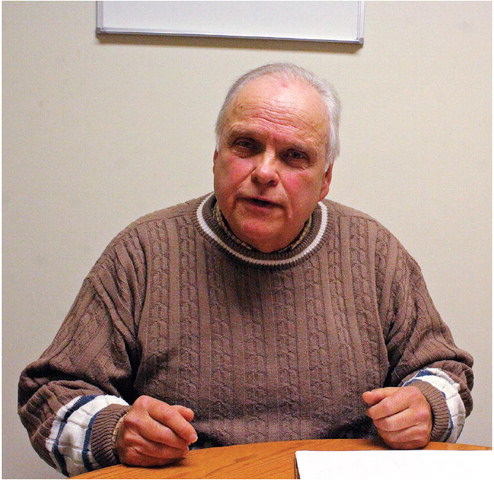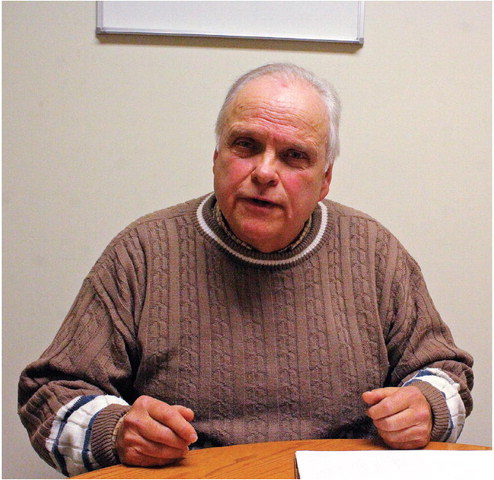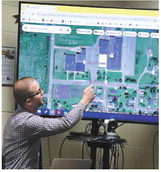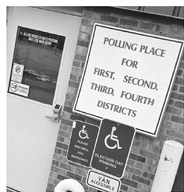Economy is focus of candidate’s congressional bid


Lawrence Dale is one of two Democrats that will be on the primary ballot next month
Decision 2020Decec
CANDIDATE
CONVERSATIONS
7thCongressional
Lawrence Dale describes himself as being a FDR Democrat that feels the Democratic National Committee has moved too far away from the party’s New Deal roots.
Dale is one of two Democrats running in the special election primary for the Seventh Congressional District seat previously held by Rep. Sean Duffy. Duffy resigned from the seat in September citing family concerns.
Dale recently made a campaign swing through Medford, stopping at The Star News office to talk about his candidacy.
Dale has been living and working in Wisconsin’s Seventh Congressional District since 2006. First as an independent contractor selling value added meat products and since 2011 selling insurance.
In 2014, Dale ran as a Green Party candidate for the Seventh Congressional District. He said it was his opposition to the Wisconsin’s infamous 2014 Mining Bill , sponsored by fellow congressional candidate Tom Tiffany, that moved him to run. His political involvement continued in the 2016 election where he was active as a volunteer in Bernie Sanders’ presidential campaign.
Dale is a Vietnam veteran who served in the Army Artillery. He attended college on the G.I. Bill and majored in government at Ohio University and received his masters degree in industrial and labor relations with a focus on economics from the University of Oregon’s College of Business.
In running for Congress, Dale says he has talked to literally thousands of people. Throughout all those conversations he says the economy is his chief concern, noting he feels the economic recovery in the past decade has largely bypassed northern Wisconsin.
He cites mills remaining closed and the continued loss of family farms as just two of the ways the region is being forgotten by economic growth. At the same time he said there needs to be economic growth in the northwoods, he said it must be done in a way that is in balance with other industries such as tourism. He noted that if the mining had developed under Tiffany’s mining bill, it would have “obliterated” billions of dollars worth of tourism revenue for the region.
Dale feels the federal government must take an active role in helping to build the modern infrastructure needed for economic growth to occur. He said a combination of federal grant dollars leveraged with private grants could help provide the infrastructure needed for farmers and industry to take off in the region.
Dale says hemp has the potential to have a major impact on the region by providing new cash crops for farmers while providing additional pulp material for currently idle paper mills.
“There is a myriad of product in high demand from the raw material in hemp,” Dale said.
He said that not only could the region benefit from producing hemp as a raw material, but also through value- added processing into things like textiles that would bring additional high-paying jobs to the region.
Dale also cites education as being of special importance in his campaign, particularly when it comes to the burden of student loan debt. He said the student loan debt burden is preventing people from buying homes, and starting families. He would like to see the student loan debts erased and for people to have the opportunity to make a good living and provide for their families.
The third component Dale advocates for in his campaign is the push for renewable energy. He said the current use of fossil fuels is at odds with the long-term survivability of the planet. He especially points a finger at petroleum industry. “Petroleum has known for 30 years that greenhouse gasses would hit us,” Dale said.
Dale said he would push for the elimination of federal subsidies to petroleum companies and instead use those funds to help expand wind and solar energy where it is feasible.
“We have to work together to make this economy of ours dynamic,” Dale said, noting there needs to be bipartisan effort on environmental issues and at the same time look at ways the federal government can improve the lives of the people.
District






